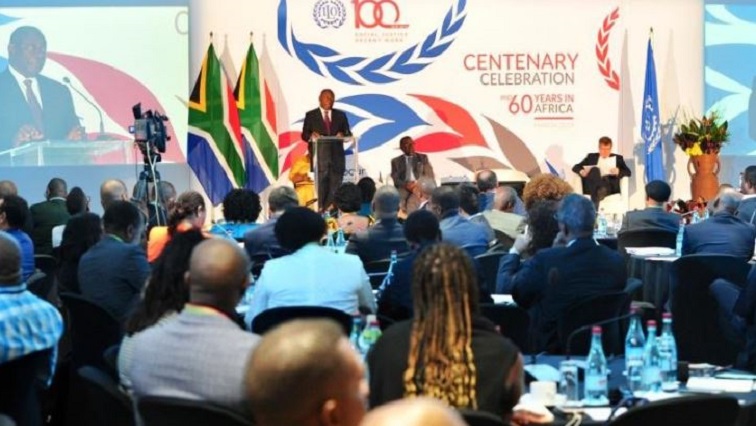President Cyril Ramaphosa says measures to improve gender balance must be taken to ensure equal opportunities for people to grow in the technology sector.
He was speaking at the launch of the International Labour Organisation’s Global Commission on the Future of Work Report.
The report identifies and makes recommendations about the challenges that workers face.
Ramaphosa says there needs to be investment in skills development in order for people to benefit from new technologies.
“Gender equality must be made a reality through taking transformative and measurable steps. This includes more gender balanced measures around childcare, family responsibilities, more transparency in pay – including mandatory reporting, eliminating violence and harassment in the workplace and specific measures to ensure opportunities – particularly in the technology sector.”
The report calls for a people-centred approach to address the challenges brought about by technological advances and climate change. It is said to be an important framework for governments globally to formulate strategies and policies.
In the year that the International Labour Organisation’s celebrates its centenary, it has laid out a critical report which sets out to address a wide range of issues affecting the world of work.As the global unemployment rate continues to rise.
The current labour force has challenges of its own. This report makes a number of recommendations which include investment in people’s capabilities and in decent sustainable work.
A Universal Labour Guarantee is also proposed which will set basic working conditions such as a living wage and safety in the work place. As the world shifts towards a new order of technology, it also states that workers can never be replaced.
“Workers and employer organisations need to embrace technology to reach and organise those working in non-traditional and informal ways. In the 20th century, we established that labour is not a commodity; in the 20th century we ensure it is not a robot. We propose a human-in-command approach ensuring that technology frees workers and improves work, rather than reduce their control, “says Ramaphosa.
The report has received the support of the Southern African Development Community region. The importance of skills development was emphasised.
“Considerable investments must be made to support education and skills development that will swiftly and adequately respond to new developments as a top priority the education curriculum in our region needs considerable orientation to better respond to the emerging and future labour markets,” says Namibian President Hage Geingob.
The Congress of South African Trade Unions (Cosatu) says while it sees the report is a move in the right direction it cautioned against workers being replaced because of technological advances.
“If you are going to bring in ICT in the labour market, it cannot replace workers because if it does the burden resides with government, robots do not consume the products that they produce therefore to grow the economy you need people to be working,” says Cosatu president Zingiswa Losi.
The culmination of the “Future of Work” initiative will be the 2019 International Labour Conference, with the possible adoption of a Centenary Declaration. Click below for more on the story:






